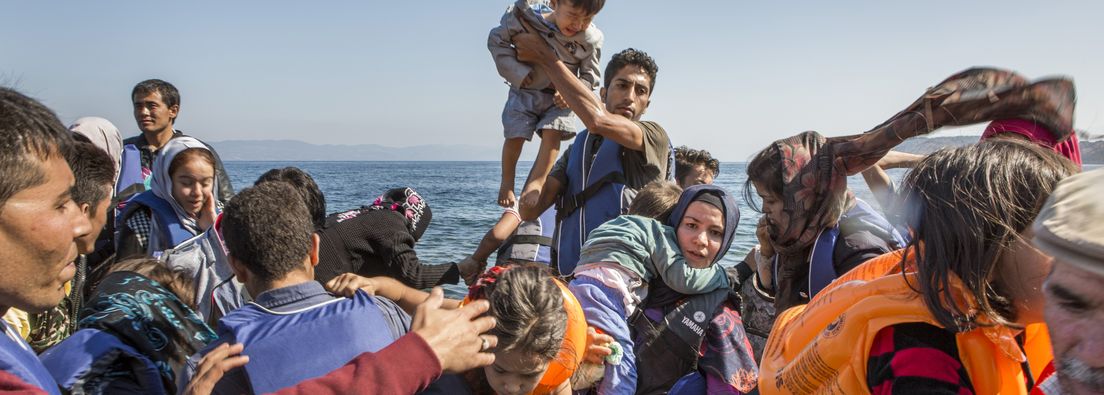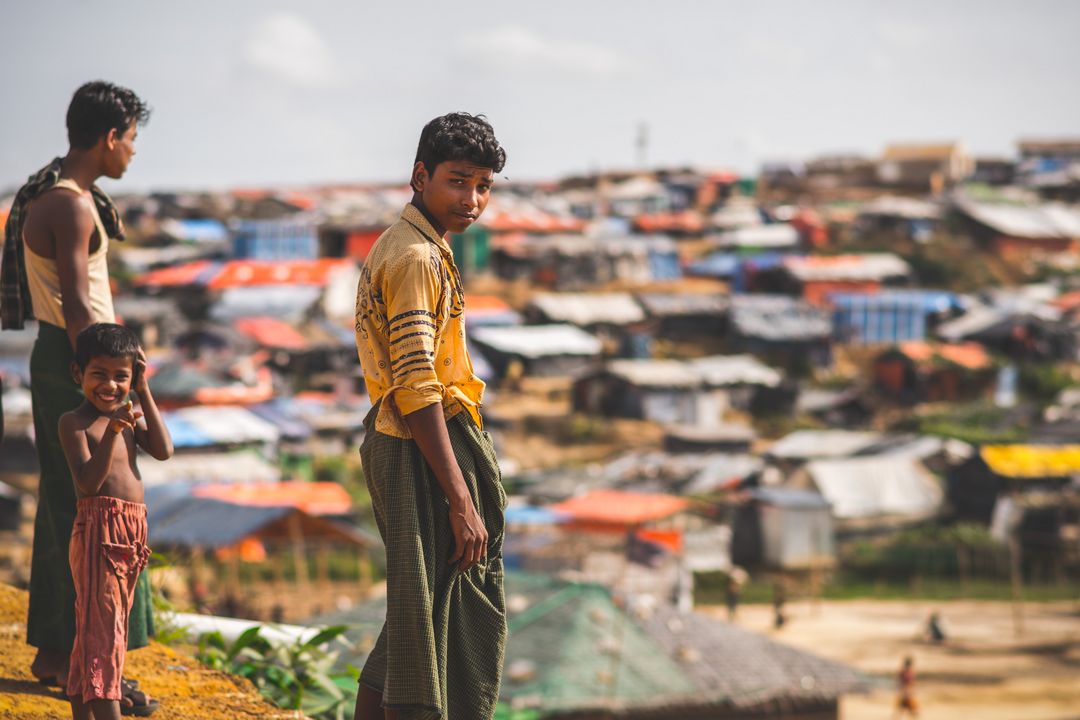There are currently more than one million Rohingyas in Bangladesh. They fled from violence in their home villages in Myanmar. Around 900,000 of these refugees live in dire conditions in overcrowded camps in Cox’s Bazaar in the south of the country. This situation poses a huge challenge to the host country as well as all humanitarian actors involved.
Myanmar
Since the end of 2017, the Muslim minority of the Rohingyas has been the fourth largest refugee group in the world. In total, more than 1.2 million Rohingyas are believed to have fled across Myanmar’s borders. Since its independence, Bangladesh has repeatedly taken in Rohingya refugees in the 1970s and then again in the 1990s. The latest mass departure, which started in August 2017 and has seen more than 700,000 Rohingyas arrive in Bangladesh, has been the biggest ever exodus recorded worldwide. It was triggered by new outbreaks of violence in Rakhine, Myanmar’s poorest state. All ethnic groups, including the Buddhist majority as well as the Muslim and Hindu minorities, are affected by poverty. Being the biggest Muslim minority, the Rohingyas are particularly vulnerable as they are not eligible for Myanmar citizenship, which makes them stateless. For this reason, basic human rights such as the freedom of movement and access to education, health care or the safety of livelihoods are limited. Rohingyas in Myanmar are not only exposed to discrimination, they are also repeatedly the victims of physical and psychological as well as sexual abuse.
According to UNHCR, there are currently more than 10 million stateless people worldwide. They usually do not have access to education, medical care or the labour market. They are not allowed to open a bank account and are often not permitted to get married. Statelessness has various reasons. For example, the discrimination of certain ethnic groups, the new definition of state borders or certain loopholes in nationality laws.
Cox's Bazar
Cox’s Bazar In Bangladesh, most of the Rohingyas live in camps. The living conditions are often dire as the available space is extremely limited. More than 623,000 people live in the biggest IDP camp, which is one-and-a-half times the population of Zurich, Switzerland’s biggest city. This “mega camp” now constitutes Bangladesh’s fourth biggest city. As the government of Bangladesh was only able to provide limited spaces for these camps, only eight square metres are available per person in the most cramped quarters of the camp. According to UNHCR, the international standard for such camps is 45 square metres. In some places, it is impossible to build roads due to the lack of space, which makes the delivery of humanitarian items and access for rescue personnel rather difficult. These cramped conditions also increase the risk for disease outbreak. The area around Cox’s Bazaar is also prone to natural disasters such as hurricanes and floods as well as landslides, especially in monsoon season. This additional risk is mainly due to deforestation in the area as many refugees are forced to cut firewood to survive.
International Engagement
The dire situation in Bangladesh since the outbreak of violence in 2017 has encouraged various international actors, such as Switzerland, UNHCR and IOM to provide humanitarian assistance.
The international engagement is very broad. During the first few months of the crisis, life-saving relief items such as blankets, tarpaulins, mattresses, frame tents as well as cooking sets were primarily needed. Humanitarian operations also include the development of existing IDP camps in order to improve the security and living conditions of the Rohingya refugees and reduce the risk of floods and landslides during the monsoon from June to September. Granting access to clean drinking water and supporting local hospitals are also top priorities. Since the beginning of the crisis, thousands of latrines and water points have been constructed while hospital capacities have been expanded, which has led to a reduction in acute health risks, such as diarrhea.
It remains to be seen whether the situation will improve in the near future. There are no humanitarian solutions for political problems. Lasting peace needs political willpower of all parties involved.
For more information on UNCHR’s engagement:
https://www.unhcr.org/dach/ch-de/ueber-uns/wo-wir-taetig-sind/asien-und-pazifikregion/rohingya-nothilfeeinsatz
For more information on Switzerland’s engagement:
https://www.eda.admin.ch/deza/en/home/themes-sdc/health-development.html/content/dezaprojects/SDC/en/2017/7F09945/phase2


